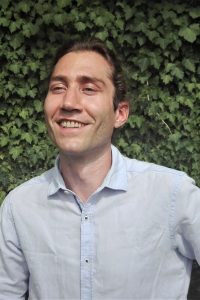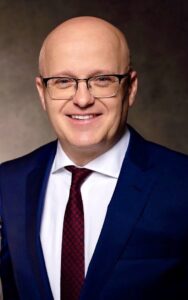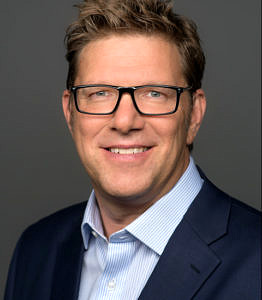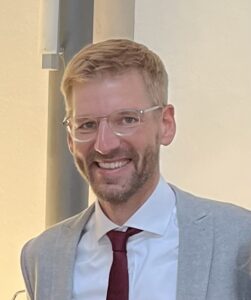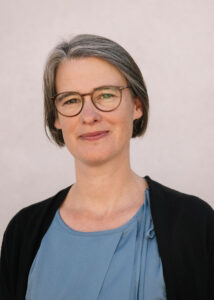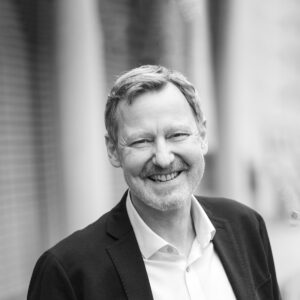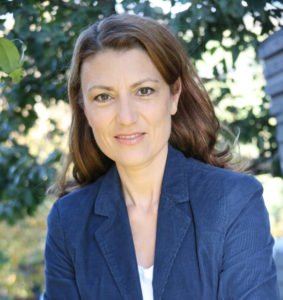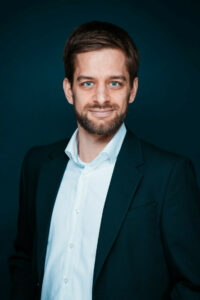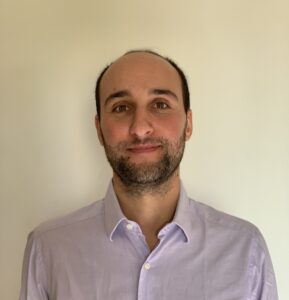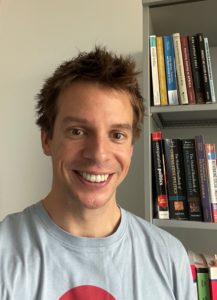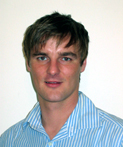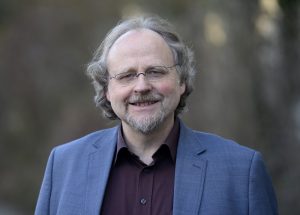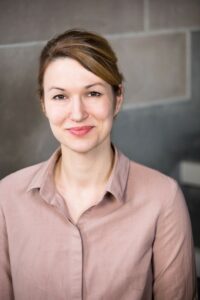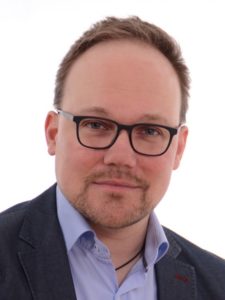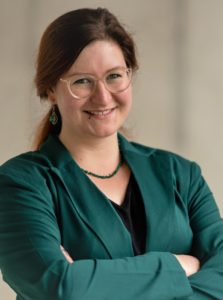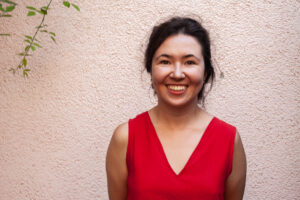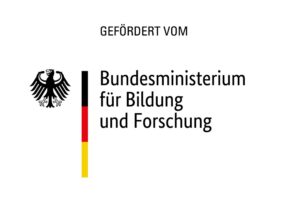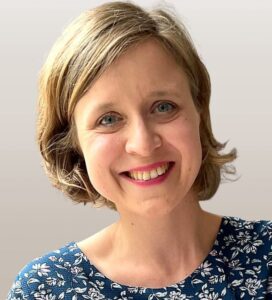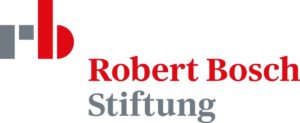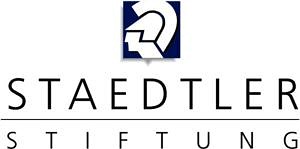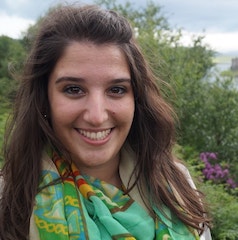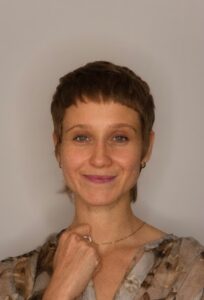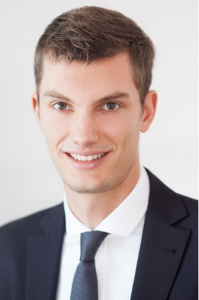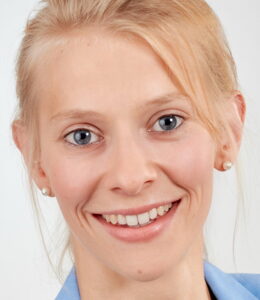Index
International Relations and Political Economy
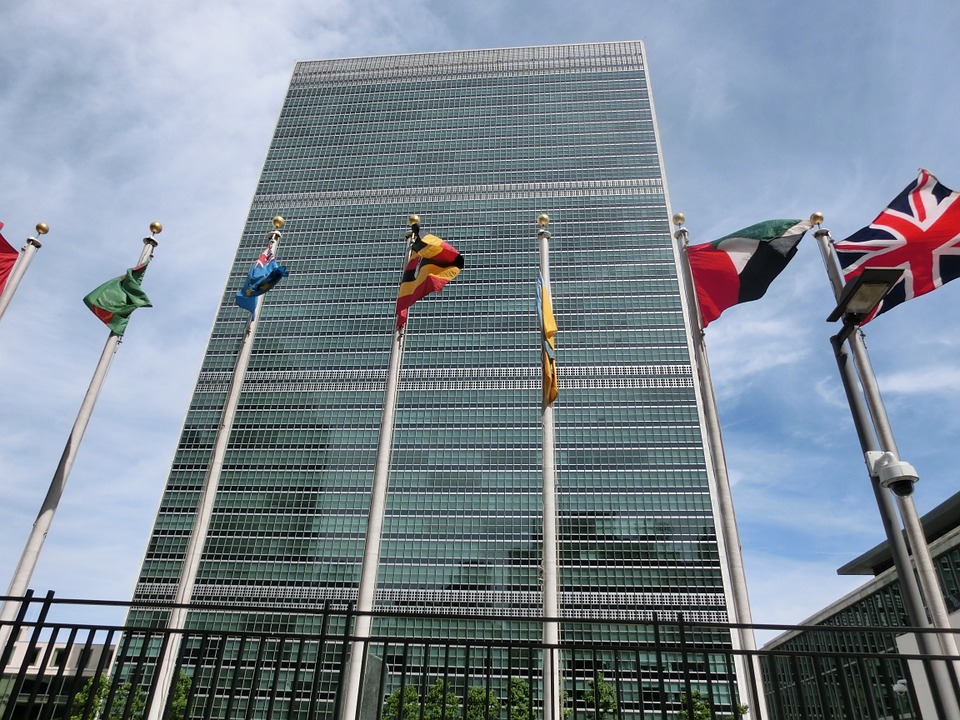
The research unit of International Relations and Political Economy researches the dynamics of global order and the broad fields of foreign (economic) and security policy. The central research foci are transatlantic relations as well as German, European, and American foreign and security policy, with particular emphasis on geoeconomics and global power shifts. Another focus is research on Western statebuilding and stabilization interventions in (post-)conflict societies as well as the influence of non-state armed movements on state formation processes. Investigating the political economy and organizational structure of rebel groups engaged in civil wars and the long-term impact of this legacy of violence on post-conflict statehood in sub-Saharan Africa lies at the heart of this research theme.
Current Projects
Principal Investigators: Prof. Dr. Stefan Fröhlich & Prof. Dr. Ulrich Schlie
Duration: 2023 – 2024
Project Description:
The essay analyzes why there have been serious foreign and security policy misjudgments in recent years, such as the illusions of German energy and Russia policy. It also advocates a reassessment of the economic dimension as part of foreign policy to avoid – for example when dealing with China – making misguided decisions once again in this field. Stefan Fröhlich and Ulrich Schlie advocate a fundamental strategic new beginning. They outline how German security policy should be structured in the future in order to meet the geo-economic and geopolitical requirements of a changed world order in which American power is dwindling, and authoritarian powers are rising.
Principal Investigators: Prof. Dr. Stefan Fröhlich
Duration: 2023 – 2024
Project Description:
The current global geopolitical power struggle for zones of influence will be reinforced by a further development that will be at least as decisive for Europe in the medium and long term as the question of its defense capability: the growing importance of the geo-economy. Governments worldwide rely on economic means to achieve foreign policy and economic goals, but also to develop spheres of influence. They thus reinforce the trend towards nationalism, isolation and conflict readiness (Brexit, Trump, China’s increasingly aggressive attitude, Russia, populism in Europe and the USA). The instruments include targeted sanctions in the areas of finance, travel, military support and trade, export restrictions, but also the strategic restriction or opening of access to bonds, financial transactions or economic aid. In all cases, these are protectionist measures that hinder the international exchange of goods, capital, people or technology. The project examines the adequate answers of Europe and Germany to the geo-economic challenges of the 21st century.
Principal Investigators: Dr. Johannes Jüde
Duration: 2023 – 2024
Funding Institution: Emerging Talent Initiative (ETI), Friedrich-Alexander-Universität: 7.777 €
Website: Emerging Talent Initiative (ETI)
Project Description:
The research project that is developed with the support of ETI-funding aims to examine the impact of non-state armed movements on state-building and state decay, with a specific focus on the Sahel and Horn of Africa regions. The project will explore the long-term effects of civil wars on statehood and how external intervention may contribute to this phenomenon. Through a multi-disciplinary approach that draws on theories of state formation and international statebuilding, peace- and conflict studies, and regional expertise, the project seeks to provide new insights into the complex dynamics of state-building and state decay in the context of armed conflict. The findings of this research will have important implications for policymakers, scholars, and practitioners working on conflict resolution and state-building initiatives in the region.
Completed Projects
Principal Investigator: Prof. Dr. Stefan Fröhlich
Duration: 2016 – 2017
Funding Institution: Transatlantic Academy, 50.000 $
Webseite: “Suspicious Minds – Report (PDF)
The Transatlantic Academy fellows came together in September 2016 and were in residence at the Academy in Washington, DC through May 2017. They engaged in a number of workshops and a joint study trip to Europe and held weekly jour fixes to develop both their individual papers and this concluding collaborative study, which offers some policy ideas for the new U.S. administration and for the German government.
People
Comparative Political Science

Research in comparative politics at the Institute encompasses a broad range of topics and covers all levels of governance and a large geographical variance. In addition to the classic fields of comparison, such as elections and parties in international comparison, the main topics include political field-specific foci, for example, in environmental, infrastructure or migration policy. Furthermore, processes of democratization and autocratization or political-economic change processes are examined. A unique feature of the Institute in Erlangen is its broad regional expertise, which extends beyond Germany and the European Union to Africa (especially the sub-Saharan African region and South Africa), China, East and Southeast Asia, as well as the Middle East and North Africa.
Current Projects
Principle Investigators: Prof. Dr. Katrin Kinzelbach; Prof. Dr. Staffan I. Lindberg (V-Dem Institute, University of Gothenburg)
Researcher: Dr. Lars Pelke
Period: 01. September 2021 – 31. August 2026
Funding: Volkswagen Foundation
Website: https://academic-freedom-index.net
Project Description:
171 states have ratified the UN Covenant on Economic, Social and Cultural Rights, which obligates states parties to respect the freedom of scientific research. The Academic Freedom Index is a word-wide effort to assess the de facto compliance with this legally binding commitment.
The project involves close cooperation between the Institute of Political Science at FAU Erlangen-Nürnberg and the V-Dem Institute at the University of Gothenburg. It relies on a sophisticated methodology, which is informed by item response theory, and provides comprehensive expert-coded data on the realisation of academic freedom worldwide. Annual updates will open up a wide range of possible applications in science promotion, management and policy. These data also provide the basis for two postdoctoral projects on the causes as well as the consequences of declining/increasing academic freedom levels.
Principle Investigators: Prof. Dr. Sandra Eckert, Prof. Dr. Constantin Wurthmann, Dr. Simon Primus
Duration: May 2024 – May 2025
Funding: Universitätsbund Erlangen-Nürnberg e. V./ Luise Prell Stiftung/ International Association for the Study of German Politics
Project Description:
As part of the EUROPOLVER project, the Chair of Comparative Politics has conducted two pre-election surveys ahead of the 2024 European elections in Germany and Austria. On the one hand, these are now being used for analyses that allow conclusions to be drawn about the political culture and voters’ satisfaction with democracy in both countries. On the other hand, the aim is to investigate how trust in political institutions shapes voting decisions. One focus will be on examining the motivations behind voting decisions and how these could change political competition beyond the European elections.
Principal Investigators:
Researchers:
Duration:
Funding Institution:
Project Description:
Completed Projects
Principal Investigators: Prof. Sandra Eckert (FAU), Dr. Orr Karassin (Open University Israel), Prof. Yves Steinebach (LMU München)
Researchers at FAU: Eklavya Vasudev
Duration: 1 January 2022 31 December 2022
Funding Institution: German Israeli Foundation for Scientific Research and Development (GIF)
Project Description:
The German-Israeli project „Regulating the Circular Economy and Plastics in the OECD World“ (RegCirc) contributes to existing research as it for the first time investigates the regulatory and voluntary measures that have been adopted in 12 OECD countries and by the European Union in the period between 2001 and 2021 to realise the Circular Economy for plastics. Based on this stocktaking the team researches the conditions and motives that have led to the adoption of these measures, but also their effectiveness.
People
Political Theory and History of Ideas

This larger research area centers around Modern Political Theory as well as the History of Political Thought from the 19th century until today. Our approach is primarily comparative-systematizing, conceptual, historical and discourse-analytical. Four integrating focal areas tie together the researchers’ individual projects:
- International and global political thought (i. e. questions of international political order, ranging from federalism to imperialism)
- Political semantics, their contestation and communication in political images and metaphors (political iconology and metaphorology)
- Conservative, authoritarian and anti-democratic political thought
- A regional focus on Englisch, Russian, and German-language debates
Current Projects
Principal Investigators: Prof. Dr. Eva Marlene Hausteiner
Duration: 2022 – 2023
Funding Institution: Volkswagen Foundation, Funding line „Originalitätsverdacht“, 2022-2024
Project Description:
Is the ending of political orders, then, something feasible and desirable – and who gets to decide over this finitude? Under which conditions and with which justifications do political systems with pre-designed time limits develop? Is there a logic of political finitude? The project ventures into the intersection between the history of political thought and systematic political theory, attempting to combine the analysis of concrete finite orders with a typology of theoretical justification of such temporary designs.
Principal Investigators: Prof. Dr. Eva Marlene Hausteiner
Researcher: Marina Soltsneva
Duration: 2023 – 2027
Funding Institution: DFG Research Group „Aitiologies“, 2023-2027
Project Description:
The research project investigates the temporal-justifying, i.e. aitiological narrative patterns of the ideological current of Russian neo-Eurasianism. The aim is to examine the narrative-explanatory assertion of a conflict between Eurasia and the West that originated in the Middle Ages and has shaped it ever since – based on the thesis that neo-Eurasianism must be understood not only as a geopolitical movement, but as an aitiological narrative of conflict. On the one hand, the project focuses on the narrative-aitiological means of checking the plausibility of this conflict (including iconographic strategies and traditional narratives of the history of ideas) and, on the other hand, on its role in the justification of an aggressive imperial programmatics.
Project Description:
Laila Riedmiller’s doctoral project examines temporal strategies of the “New Right”, particularly their relation to and history of accelerationist thought. Simultaneously,the relationship between left and right accelerationism is examined from a comparative perspective.
People
Human Rights and Human Rights Politics
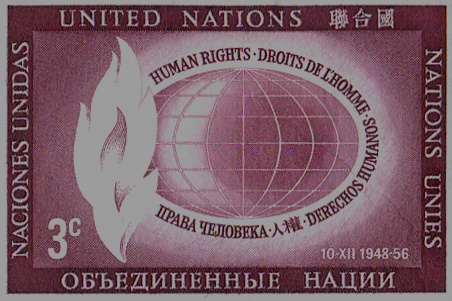
Against the background of current socio-political and international developments, human rights research at the institute deals, on the one hand, with theoretical questions of the justification, interpretation and continuing significance of human rights; on the other hand, it empirically examines the human rights situation and human rights politics at local, national and international level. We cover the entire spectrum of human rights and human rights actors in our research and place particular emphasis on the freedom of religion and belief, academic freedom, and political and social human rights. Our research is embedded in an interdisciplinary human rights focus at FAU, coordinated by the Center for Human Rights Erlangen-Nuremberg (CHREN).
Current Projects
Principle Investigator: Prof. Dr. Katrin Kinzelbach
Researcher: Zuzana Jurasova
Duration: September 2024 – April 2025
Funding: ZEIT Foundation
Project Description:
As part of an action-oriented research lab, students at FAU Erlangen-Nuremberg will work together with the Scholars-at-Risk Network (SAR) in the winter term 2024/2025. SAR is an international network founded at New York University that works to protect persecuted scholars. Participants in this research workshop deal with the documentation of human rights violations in the higher education sector, research individual cases and write country reports that will be submitted to the United Nations Human Rights Council in cooperation with SAR.
Principal Investigator: Prof. Dr. Dr. h.c. Heiner Bielefeldt
Period: 2020 – today
Project Description:
According to the Universal Declaration of Human Rights of December 1948, human rights are “the foundation … of peace in the world”. In the face of a fundamental crisis of rules-based multilateralism in general, Heiner Bielefeldt sets out to analyze the peace-building potential of human rights, to explore practical options of various agents in this field and develop fragments of a realistic perspective of hope. The monograph on this topic will presumably appear in 2024.
Principal Investigator: Prof. Dr. Dr. h.c. Heiner Bielefeldt
Period: 2009 – today
Project Description:
The right to freedom of religion or belief (FoRB) has always been politically contested. On the one hand, we witness numerous violations ranging from structural discrimination or targeted indoctrination of children to mass detentions and atrocities of genocidal dimensions. On the other hand, we have seen political attempts to turn and twist FoRB into a bastion of anti-liberalism and anti-genderism, thereby even obfuscating its status as a human right. The normative contours of FoRB and its relationship to other human rights, especially in the area of gender justice, thus warrant careful analysis and clarification. Over many years, Heiner Bielefeldt has been committed to strengthening FoRB as an indispensable component of a holistic human rights approach. Between 2010 and 2016, he served as the UN Special Rapporter on FoRB. His reports are available in all six official UN languages. Together with Nazila Ghanea (the current UN Special Rapporteur on FoRB) and Michael Wiener, Bielefeldt published a commentary for Oxford University Press (“Freedom of Religion or Belief. An International Law Commentary”, 2016), which will shortly appear in its second enlarged edition. His book “Religious Freedom Unter Scrutiny”, coauthored with Michael Wiener (Pennsylvanian University Press, 2020), is also available in German and Indonesian languages.
Principle Investigators: Prof. Dr. Katrin Kinzelbach; Prof. Dr. Staffan I. Lindberg (V-Dem Institute, University of Gothenburg)
Researcher: Dr. Lars Pelke and Dr. Angelo Panaro
Period: 01. September 2021 – 31. August 2026
Funding: Volkswagen Foundation
Website: https://academic-freedom-index.net
Project Description:
171 states have ratified the UN Covenant on Economic, Social and Cultural Rights, which obligates states parties to respect the freedom of scientific research. The Academic Freedom Index is a word-wide effort to assess the de facto compliance with this legally binding commitment.
The project involves close cooperation between the Institute of Political Science at FAU Erlangen-Nürnberg and the V-Dem Institute at the University of Gothenburg. It relies on a sophisticated methodology, which is informed by item response theory, and provides comprehensive expert-coded data on the realisation of academic freedom worldwide. Annual updates will open up a wide range of possible applications in science promotion, management and policy. These data also provide the basis for two postdoctoral projects on the causes as well as the consequences of declining/increasing academic freedom levels.
Principle Investigator: Prof. Dr. Michael Krennerich
Period: 2023 – 2024
Project Description:
Social human rights have gained considerable importance in recent years. Our research asks how social human rights are codified, interpreted and enforced in the interaction between civil societies, states and the international community. This includes both a discussion of criticism towards social human rights and an analysis of problems and resistance to their implementation. The research activities build on the standard work by Michael Krennerich “Soziale Menschenrechte. Zwischen Recht und Politik” (2013, 526 p.) as well as academic contributions and lectures on the topic in recent years. In 2023, academic exchange with researchers in other European countries (Austria, Slovakia, etc.) will be intensified. A more advanced book on social human rights is going to be published in 2023/2024.
Principle Investigators: Prof. Dr. Katrin Kinzelbach; Prof. Dr. Georg Glasze und Prof. Dr. Blake Walker
Researchers: Lama Ranjous and Raphaela Edler
Period: 01. September 2022 – 31. August 2025
Funding: German Federal Ministry of Education and Research
Project Description:
The project “Geospatial data for the digital documentation of human rights violations” (GeoDatRights) aims to a) use satellite-based remote sensing and social media data to investigate the destruction and military appropriation of educational institutions in war zones, and b) to enhance, over the course of the project, human rights-related digital analysis skills in German academia. FAU has already established a distinctive human rights profile and wants to expand this in a future-oriented manner. Internationally, digital human rights investigations are playing an increasingly important role in research and teaching; in Germany, only a few non-governmental organisations address the topic so far, in particular the Syrian-led organisation Mnemonic, whose comprehensive digital archive will be made accessible for the project’s researchers. Attacks on educational institutions in Syria are the focus of our analysis. The intergovernmental Safe Schools Declaration contains a series of commitments to strengthen the protection of education from attack, and to limit the use of schools and universities for military purposes. Signatory states to the Safe Schools Declaration (including Germany in 2018) have agreed to a series of commitments that include the need to collect data about attacks on educational institutions. With this project, we explore the usability of geospatial data for this purpose, drawing on interdisciplinary cooperation involving political scientists focused on empirical human rights research and geographers who will contribute, in addition to their regional expert knowledge, methodological competence from digital geography.
Principle Investigator: Prof. Dr. Michael Krennerich
Editorial Board: Prof. Dr. Michael Krennerich, Prof. Dr. Christina Binder, Dr. Tessa Debus, Prof. Dr. Elisabeth Holzleithner, Prof. Dr. Arnd Pollmann, Dr. Janika Spannagel, Prof. Dr. Stefan Weyers
Period: 2007 – today
Funding: Wochenschau-Verlag; Seed-funding: German Foreign Office; single issues: BMZ/GIZ and „Wertvolle Zukunft. Stiftung für ethisches Handeln“
Website: www.zeitschriftfuermenschenrechte.de
Project Description:
Published since 2007, „Zeitschrift für Menschenrechte. Journal for Human Rights” (zfmr) is the leading interdisciplinary journal on human rights and human rights politics in the German-speaking world. It brings current human rights issues to analysis and reflection from the perspective of political science, history and law as well as philosophy, sociology and education. The editor-in-chief is Michael Krennerich, who, together with colleagues from Germany and Austria, is responsible for producing the journal. So far, around 220 authors from different regions of the world have contributed to the journal.
Editorial Board: Prof. Dr. Simone Derix, Prof. Dr. Jan Eckel, Prof. Dr. Andreas Frewer, Dr. Rainer Huhle, Prof. Dr. Katrin Kinzelbach, Dr. Daniel Stahl, Prof. Dr. Annette Weinke.
Period: 01. February 2020 – today
Funding: Fritz Thyssen Foundation
Website: www.geschichte-menschenrechte.de
Project Description:
The science portal www.geschichte-menschenrechte.de was launched in 2015 by the Working Group Human Rights in the 20th Century (University of Jena). FAU took over the coordination in June 2020. The website brings together biographical interviews and commentaries that historicize the development of human rights since the 20th century. The focus is on national and international actors, concepts and practices: In what way and with what motives have different groups and individuals acted as human rights norm-entrepreneurs? What practices have they established? How do different institutions such as the UN, the European Court of Human Rights or the International Criminal Court shape the history of human rights? On what normative grounds do supporters but also opponents of human rights operate?
Completed Projects
Principle Investigator: Prof. Dr. Katrin Kinzelbach
Researcher: Dr. Alexandra Kaiser
Period: 1. July 2021 – 31. December 2023
Funding: German Federal Ministry of Education and Research
Project Description:
The project explores the legal and institutional framework of the “freedom indispensable for scientific research” as well as the empirical reality of this freedom in China. To understand the current opportunities and limits in the Chinese research and innovation system, it is necessary to examine academic freedom in the era of Xi Jinping from a socio-legal perspective. Our project focuses the institutional autonomy of Chinese universities, and on the freedom of academic exchange, which are both subdimensions of academic freedom as enshrined under international law. Taking international law as the benchmark, we are particularly interested in evaluating developments since President Xi Jinping assumed office in 2013. We analyze relevant primary sources, including statutory provisions, policy guidelines, political documents as well as statutes of select universities. Furthermore, we examine the empirical reality of institutional autonomy by undertaking case studies. Together with the German Centre for Higher Education Research and Science Studies, we will undertake a pilot bibliometric study to measure the freedom of academic exchange in different disciplines. Last but not least, we will conduct interviews and a survey amongst scholars. The project aims to broaden our understanding regarding the opportunities and limits of scientific collaboration with Chinese partners.
Principle Investigator: Prof. Dr. Michael Krennerich
Period: 2022 – 2024
Funding: Friedrich Naumann Foundation for Translation and Publication in English
Project Description:
The aim of the research is to show how the complex reality of human rights politics can be described and studied more systematically using concepts of political science and related disciplines. A first result is the German monography written by Michael Krennerich, “Human Rights Politics. An Introduction” (2023), which will be edited and translated for the English-speaking world in 2023/2024.
Principle Investigator: Prof. Dr. Dr. h.c. Heiner Bielefeldt
Period: 2020-2023
Cooperation Partner: Jesuit Worldwide Learning – Higher Education at the Margins
Project Description:
Human rights obtain their specific normative contours and (limited) effectiveness through enshrinement in positive law. At the same time, they point beyond the sphere of positive legislation. The 1948 Universal Declaration of Human Rights, “mother document” of international human rights protection, professes respect of the “inherent dignity” of all human beings. Universal rights to freedom and equality back up this due respect. Although claiming an intrinsic persuasiveness, human rights have always been, and continue to be, a contested theme. In cooperation with “Jesuit Worldwide Learning. Higher Education at the Margins”, Heiner Bielefeldt developed a learning program, which specifically addresses people living in refugee camps or in similarly challenging situations. Bielefeldt’s book “Sources of Solidarity. A Short Introduction to the Foundations of Human Rights” was published in 2022 by FAU press. It is also available online (free of charge). A Portuguese version will be published shortly. Translations into other languages are in preparation. Didactical material will shortly be available.
Principle Investigators: Prof. Dr. Dr. h.c. Heiner Bielefeldt und Prof. Dr. Andreas Frewer
Period: 2014 – 2021
Funding: 2014 – 2017 Emerging Fields Initiative (EFI); 2018 – 2021 Josef & Luise Kraft Foundation
Website: https://www.grk.menschenrechte-und-ethik.med.fau.de
Project Description:
Many of the problems currently discussed in medical ethics, e.g. the treatment of persons with dementia or issues of advance healthcare planning, display obvious human rights dimensions. At the same time, the human right to health and other human rights provisions are certainly relevant for medical ethics. Within FAU’s Emerging Fields Initiative (EFI), Andreas Frewer and Heiner Bielefeldt organized a number of conferences exploring problems at the intersection of human rights and medical ethics. They also initiated a book series (“Human Rights in Healthcare”), which by now contains seven volumes. Between 2018 and 2021, Frewer and Bielefeldt co-chaired a graduate school, supported by the Munich-based Kraft Foundation, with a focus on “Human Rights and Medical Ethics for Older Persons”.
Principle Investigator: Prof. Dr. Michael Krennerich
Period: 2020 – 2022
Funding: Friedrich Ebert Foundation for Translation and Publication in English
Project Description:
Based on a worldwide analysis of constitutions, electoral laws, websites of electoral authorities and election observer reports, suffrage and electoral practice standards of free and fair elections were systematically presented and their conformity in electoral practice was problematized. The outcome was the book written by Michael Krennerich “Freie und faire Wahlen? Standards. Kurioses, Manipulationen” (2020), which has meanwhile been published in German in its second edition (2021) and has also been translated into English (“Free and Fair Elections? Standards, Curiosities, Manipulations,” 2021) and French (“Des élections libres et transparentes? Normes, curiosités, manipulations,” 2022).
Furthermore, Michael Krennerich conducted the study “Electoral Rights of Homeless People. Legal, Organizational and Political Conditions for the Application of Voting Rights by Homeless People” (2021) for the German Institute of Human Rights (Deutsches Institut für Menschenrechte) and contributed to the joint international study “The 2021 German Federal Election on Social Media. An Analysis of Systemic Electoral Risks Created by Twitter and Facebook Based on the Proposed EU Digital Services Act.” by the Sustainable Computing Lab/ Vienna University of Economics and Business (2021).
Principle Investigators: Prof. Dr. Petra Bendel; Prof. Dr. Michael Krennerich
Period: 2017 – 2019
Funding: German National Academic Foundation
Project Description:
The project “Refugees and Human Rights” was realized as a social science college of the German National Academic Foundation (Studienstiftung des Deutschen Volkes). The results were published in the book “Flucht und Menschenrechte” (2020), edited by Petra Bendel and Michael Krennerich.
People
Migration, Displacement and Integration
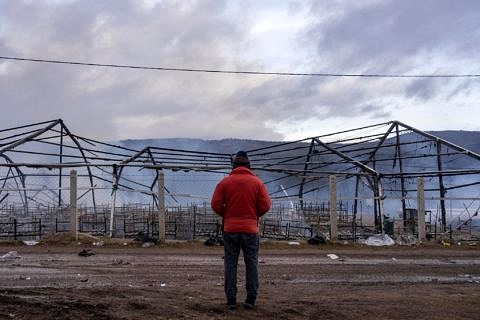
Our migration, displacement and integration research is located at the various policy levels: global /international, regional, national and local. Our teams have broad national and international research networks and are also active in policy advice and knowledge transfer to policy makers and the media. Research in this area also benefits from the institutional bridge to the topic of migration and human rights, as our projects are closely linked to the FAU Research Center for Human Rights Erlangen-Nuremberg (CHREN) and in part also settled there.
Current Projects
Project management: Prof. Dr. Petra Bendel
Research fellow: Tino Trautmann
Duration: 01.02.2020 – 31.12.2029
Websites: FFVT – Flucht- und Flüchtlingsforschung: Vernetzung und Transfer & FAU CHREN Research: FFVT
Project description:
Forced Migration and Refugee Studies: Networking and Knowledge Transfer (FFVT) is a cooperation project of the Bonn International Center for Conversion (BICC), the Centre for Human Rights Erlangen-Nürnberg (CHREN, University of Erlangen Nuremberg), the German Institute of Development and Sustainability (IDOS, Bonn) and the Institute for Migration Research and Intercultural Studies (IMIS, University of Osnabrück). It is funded by the German Federal Ministry of Education and Research (BMBF). At FAU, FFVT is led by Prof Dr Petra Bendel and coordinated by Johanna C. Günther. The aim of the project is to establish a sustainable infrastructure for research on forced migration and refugee studies in Germany to facilitate the internationalisation of this field
Project management: Prof. Dr. Petra Bendel
Research fellow: Yasemin Bekyol, Theresa Wagner
Cooperating partners: Dr. Tobias Weidinger und Dr. Stefan Kordel, Institute for Geography, FAU Erlangen-Nürnberg
Duration: 15.09.2022 – 31.01.2026
Websites: Gesundheit! Teilhabe im Pflegesektor & FAU CHREN: Gesundheit!
Project description:
Due to the increasing need for personnel in the healthcare sector as well as apparent gaps in healthcare provision, specialised personnel from abroad has become indispensable. Their recruitment, but above all their sustainable and long-term employment, depends decisively on the working conditions but also on their social inclusion at and beyond the workplace.
This research project aims to improve conditions for workers with a migration history in the healthcare sector. Ultimately it seeks to analyse how to strengthen their willingness to stay in this highly fluctuating sector. Based on qualitative research as well as coaching sessions and workshops with employees and key actors in the healthcare sector, this project aims to
- define working conditions from the perspective of employees
- gain scientific knowledge on current conditions in healthcare facilities as well as municipalities with regards to equitable employment of care workers with a migration history
- give practice-oriented impulses and recommendations for improving the professional and social inclusion of care workers at and beyond their workplace
- support representatives from municipalities as well as key actors in the healthcare sector with the precise design of concrete measures and packages by means of coaching sessions
Funded by the Mercator Foundation, the project is based at the Centre for Human Rights Erlangen-Nuremberg (CHREN) and started on September 15th, 2022. Cooperating project partner is the Institute of Geography at FAU
Project management: Prof. Dr. Petra Bendel, Prof. Dr. Hannes Schammann & Dr. Danielle Kasparick, University of Hildesheim
Duration: 01.05.2024 – 30.04.2028
Research fellow: Sonja Reinhold, FAU
Time and again, periods of increased displacement present municipalities with the challenge of providing capacities for accommodating people arriving as quickly as possible. However, capacities are regularly reduced in times of decreasing migration. Upon increases of arriving refugees makeshift solutions are then set up again. This is costly for local authorities and ties up human and financial resources that are urgently needed elsewhere. In addition, the ad hoc, unsustainable solutions often do not offer structures that meet the needs of vulnerable people.
Scientifically sound solutions dedicated to the accommodation of refugees have so far mostly remained at an abstract level and often do not do justice to the heterogeneity of municipal structures. Municipalities often have to develop concrete solutions themselves. On a practical level, we do observe innovative approaches here and there in the international arena, which are the result of great local commitment and could prove to be good practice – however, these have only been systematically tested in individual cases and have not been examined for their scalability.
The project “More than four walls – innovative ideas for sustainable accommodation in and with municipalities”, the University of Hildesheim and FAU Erlangen-Nuremberg therefore want to identify existing potential and (further) develop innovative and sustainable concepts for housing for refugees and other groups together with practitioners so that they can be implemented in municipalities. To this end, the project team – consisting of project leads Prof. Dr. Petra Bendel at FAU, Prof. Dr. Hannes Schammann and Dr. Danielle Kasparick from University Hildesheim as well as research fellow Sonja Reinhold at FAU – will cooperate with structurally differing municipalities that aim to analyze their existing solutions, jointly develop new approaches and implement them in practice.
At FAU Erlangen-Nuremberg, the project is based at the Research on Migration, Displacement and Integration and the FAU Research Center for Human Rights Erlangen-Nuremberg (FAU CHREN)– The project runs from 01.05.2024 to 30.04.2028 and is funded by the Mercator Foundation.
Completed Projects
Project management: Prof. Dr. Petra Bendel, Prof. Dr. Hannes Schammann & Dr. Danielle Kasparick, University of Hildesheim
Duration: 01.05.2021 – 30.04.2025
Research fellows: Sonja Reinhold, FAU, and Katharina Euler, University of Hildesheim
Websites: Match’In: Pilot project for the placement of asylum seekers and refugees & FAU CHREN: Match’In
This project is dedicated to the development of a new mechanism for the distribution and allocation of refugees and asylum seekers from the federal states to the municipalities. To this end, the University of Hildesheim and the Friedrich-Alexander University of Erlangen-Nuremberg are cooperating with federal states, municipalities and representatives of refugees. A specially developed algorithm will consider both the individual requirements and needs of those seeking protection on the one hand and the existing structures and resources of the municipalities on the other to achieve a better alignment (“matching”). This shall help to better address the needs of persons seeking protection, to utilize the potential of migration for municipal development, improve integration and participation, and reduce secondary migration. The project is funded by Stiftung Mercator.
For questions regarding the Match’In pilot project please contact: Sonja Reinhold, LL.M.
Project management: Prof. Dr. Petra Bendel
Research fellows: Dr. Janina Stürner-Siovitz
Websites: Equal Partnerships – African Intermediary Cities as Actors and Partners in Urban Migration Governance & FAU CHREN: Equal Partnerships
Duration:01.11.2021 – 31.10.2024
Project description:
Africa is witnessing an ongoing transformation from rural to increasingly plural urban societies. While this transformation has been well-documented, the focus of scholarship and practice has been predominantly on human mobility towards and into major urban areas and capital cities. In contrast, intermediary cities, the in-between the rural and the metropolitan, have been largely absent in academic and policy debates. The Equal Partnership works with African intermediary cities to explore collaborative, urban migration governance. The project is jointly developed by the Friedrich-Alexander-University Erlangen-Nürnberg, the city network United Cities and Local Governments of Africa (UCLG Africa), the German Institute of Development and Sustainability (IDOS), and the social enterprise Samuel Hall. We work in cooperation with six intermediary cities in East, North, and West Africa. Through participatory research, workshop, and networking formats, we bring together local, national, and international actors to develop practical impulses and policy recommendations to co-shape multi-stakeholder partnerships for urban migration governance in African intermediary cities.
The project is supported by the Robert Bosch Stiftung and based at the Centre for Human Rights Erlangen-Nürnberg (CHREN).
Find city reports and multi-stakeholder mappings from our research partnerships with Garissa (Kenya), Gulu (Uganda), Kumasi (Ghana), Oujda (Morocco), Saint-Louis (Senegal) and Sfax (Tunisia) on the Equal Partnerships website. The website furthermore presents videos, blog posts, policy papers and podcast episodes exploring different aspects of multi-stakeholder partnerships for urban migration governance in intermediary cities: equal-partnerships.com
Project management: Prof. Dr. Petra Bendel
Research fellow: Sonja Reinhold, Theresa Wagner
Duration: 01.11.2020 – 31.03.2023
Publication (German): https://www.bosch-stiftung.de/de/publikation/brennglas-corona
Interview (German): https://www.bosch-stiftung.de/de/wir-muessen-die-kommunen-resilienter-machen
The explorative research project Burning lens Covid-19: Local integration policy in times of a global pandemic is dedicated to give an insight into the impact of the Covid-19-pandemic on local integration policy. It shows new and enhanced challenges for local actors and carves out strategies that are suited to adequately respond to times of crisis. The project team develops concrete recommendations in order to strenthen municipal integration policy and, hereinafter, resilience on the local level. The project is funded by the Robert Bosch foundation.
Study for the European Parliament
Project management: Prof. Dr. Petra Bendel
Research fellow: Yasemin Bekyol
Duration: 15.01.2016 – 15.06.2016
Project description:
Commissioned by the European Parliament’s Policy Department for Citizens’ Rights and Constitutional Affairs at the request of the Committee on Women’s Rights and Gender Equality, this study provides an overview of the implementation of Directive 2013/33/EU laying down standards for the reception of applicants for international protection. It outlines the legal framework and examines how gender related aspects and the reception needs of vulnerable groups are considered in practice in Munich (Germany) and Brussels (Belgium).
This study included delegation visits to Munich and Brussels with MEPs as well as a comparative qualitative field study in both cities.
The study is available online:
Bekyol Yasemin, Bendel Petra (2016): “Reception of female refugees and asylum seekers in the EU – Case study Belgium and Germany”, Study for the Directorate General for Internal Policies, Policy Department C: Citizens’ Rights and Constitutional Affairs, Women’s Rights & Gender Equality, Brussels, 54 pages. Zur Studie.
Project management: Prof. Dr. Petra Bendel
Research fellow: Yasemin Bekyol
Duration:01.08.2020 – 31.03.2021
Website: covid-integration.fau.de (German)
Project description:
The study, conducted by FAU Erlangen-Nuremberg in participation with the University of Hildesheim, funded by the Mercator Foundation, examined the impact of the pandemic on migration movements and on integration in Germany. COVID-19 spread extraordinarily quickly and, among other things, severely restricted mobility and migration, especially in the short term. In addition to a health crisis, Covid-19 has also led to an economic crisis, the extent of which we cannot yet grasp. For many population groups, access to economic participation, housing, nutrition and education was restricted. Based on a comprehensive desktop research as well as on scenario-building, the study drafts a picture of the future based on the question: “How does integration in Germany look like in 2030?” The aim was to develop several plausible scenarios with experts on the medium-term future of migration and, above all, integration in Germany. In addition, the study aimed at generating recommendations for action on the basis of these scenarios and finally problematised the question on how political decision-makers and social actors can set course in order to meet the particular challenges of integration policy in crisis situations.
Project management: Prof. Dr. Petra Bendel, Prof. Dr. Yesim Erim, Prof. Dr. Silke Jansen, Prof. Dr. Nicolas Rohleder
Research fellows: Mojib R. Atal, Andrea Borho, Felicitas Hauck, Lucía Romero Gibu
Project website: Verbal Violence against Migrants in Institutions (VIOLIN)
Duration: 01.04.2019 – 31.03.2022
Project description:
VIOLIN is a cooperation project of political science, linguistics, health psychology and psychosomatics.
In this project, the focus was on hidden forms of exclusion and symbolic violence in the institutional environment towards migrants. The aim of the project was to make this form of violence visible and to develop a comprehensive model for the integration of migrants in new socio-cultural environments from the knowledge gained.
The project is financially supported by the STAEDTLER Stiftung.
Project management: Prof. Dr. Petra Bendel und Prof. Dr. Hannes Schammann, University of Hildesheim
Research fellow: Sandra Müller, M.A.
Duration: 01.09.2017 – 31.05.2020
Project description:
How do municipalities in urban and rural regions in Germany organize the reception and inclusion of immigrants? Can we identify institutional change in local integration politics after the massive arrival of refugees in 2015 and 2016? How can we explain the divergence/convergence of institutional settings? To what extent can urban and rural communities learn from each other? These are some of the research questions we will answer by analysing approximately 100 municipalities and districts (Landkreise) in Germany. In particular, we will focus on ‘urban-rural-comparisons’ and the divergence/convergence between regions that differ significantly regarding their economic prosperity.
The project will run from September 2017 until end of January 2020 and is funded by the Robert Bosch Stiftung.
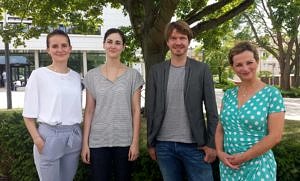
Publications (German):
Publication of the study on the website of the Robert Bosch Foundation: ![]() Studie.
Studie.
1.7.2020: Article at Migazin: “Studie: Kommunen haben Integrationsmanagement verbessert”. ![]() Zum Artikel.
Zum Artikel.
30.6.2020: Article at Neue Wiesentbote: “FAU: Zwei Welten? Integrationspoltik in Stadt und Land” ein Artikel. ![]() Zum Artikel.
Zum Artikel.
Foundation-funded study
Project management: Prof. Dr. Petra Bendel
Research fellow: Daniel Riemer
Duration: 01.01.2016 – 31.05.2016
Project description:
Reception, accommodation, access to healthcare, education and information as well as work and leisure of refugees are key areas when it comes to refugee integration at the level of Länder and municipalities. There is a considerable need for information on good practices and for networking of already existing projects in these areas. Given the current “crisis mode”, municipalities, volunteers and service providers do not have the time and capacities to develop criteria for good practices and to review already existing integration projects for their possible transferability.
Thus, this planned project “Learning from each other: Best practice examples in municipal refugee policy” comes in. Based at the Central Institute for Regional Research at the Friedrich-Alexander University of Erlangen-Nuremberg and building on a prior pilot project conducted on the needs of refugees themselves, this project aims at developing criteria for the selection of good and best practices, followed by research and categorisation of a large number of innovative practice projects in the federal territory and an in-depth study of selected projects on the ground.
Project management: Prof. Dr. Petra Bendel und Prof. Dr. Hannes Schammann, University of Hildesheim
Staff: Dr. Janina Stürner-Siovitz und Dipl.-Soz. Christiane Heimann
Duration: 01.04.2018 – 31.10.2021
Website: in progress
Project description:
This innovative academic project evaluates the impact of transnational cities’ networks on European migration policies and develops guidelines in cooperation with politicians and practitioners to strengthen their work in the European multi-level governance system. To this end, the activities of formal and informal transnational cities’ networks are examined. A special focus is placed on the EUROCITIES network, from which the movement of Solidarity Cities originated. This movement aims at demonstrating cities’ political leadership in light of integration and relocation challenges within the European Union. Besides, the EUROCITIES build the Council of European Municipalities and Regions, which is the European umbrella organisation of municipal associations in the member states. This study analyses both network activities and strategies of individual network members, such as Athens (Greece), Barcelona (Spain), Essen (Germany), Gdansk (Poland), Ghent (Belgium), Leeds (United Kingdom), Ljubljana (Slovenia) and Palermo (Italy). A mixed-methods approach is applied, combining the analysis of policy documents and expert interviews. The latter include interviews with experts of the EUROCITIES network as well as the local and the EU level. The guiding research question of this study is: How can local bottom-up agenda setting address the current migration governance crisis of the European Union in a transnational way? Hence, the aim of the project is threefold. Firstly, it offers insights into the strategies the different cities pursue and the transnational relations they use in accordance to their interests. Secondly, it evaluates the mechanisms initiated by the municipal associations with regard to their specific target. Thirdly, guidelines are developed in cooperation with politicians and practitioners and published in policy briefs, which are presented in a final meeting in Brussels. Due to the current brisance of this topic, its highly innovative perspective on the making of EU migration policies and the lack of research in this area, this project will set a milestone in understanding the role and power of municipal associations in a newly unfolding sphere of European multi-level migration governance.
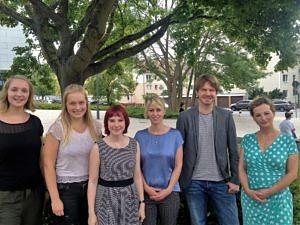
Dipl.-Soz. Christiane Heimann, Prof. Dr. Hannes Schammann, Prof. Dr. Petra Bendel
People
Area Studies
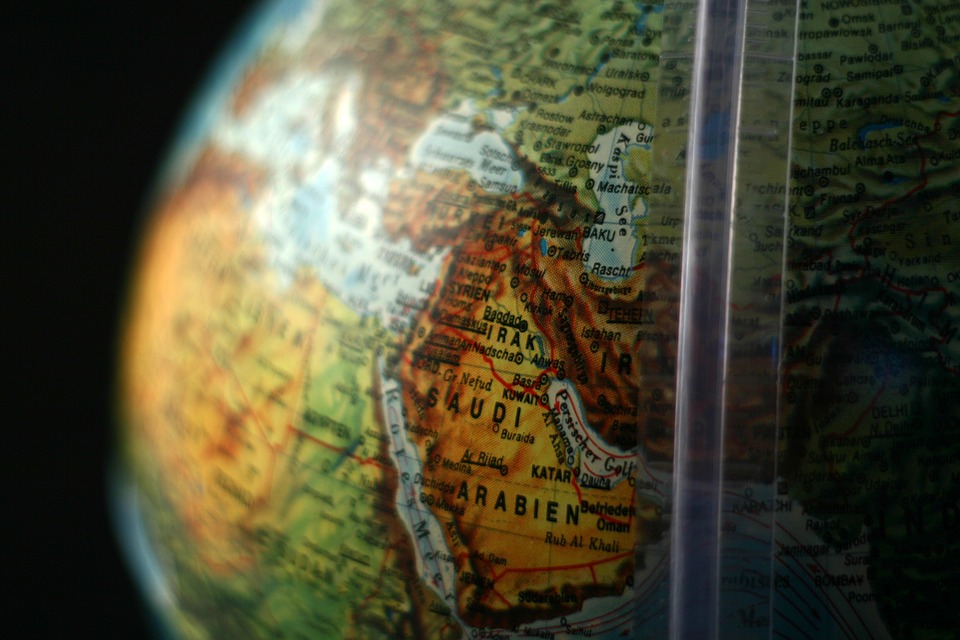
Area Studies at the Institute comprise Political Science research on the Middle East and North Africa (MENA) and East and Southeast Asia. It contributes to a broad spectrum of disciplines related to religions and regions at FAU. We understand regions as dynamic entities that are neither homogeneous nor closed (“containers”) – they are subject to continuous economic, political and cultural influences that become apparent through intra- and interregional linkages between regions. Conceptually and methodologically, our Area Studies approach is primarily located in comparative politics with references to international politics. The intra-regional, cross-regional and inter-regional studies follow a cultural hermeneutic approach and are characterized by a pronounced context sensitivity in the consideration of history, culture and spatial aspects.
Current Projects
Principal Investigators: Prof. Dr. Heike Paul (Speaker, Co-PI), Prof. Dr. Thomas Demmelhuber (Co-PI), Dr. Katharina Gerund (Co-PI), Prof. Dr. Kay Kirchmann (Co-PI), Dr. Christian Krug (Co-PI), Prof. Dr. Marc Matten (Co-PI), Prof. Dr. Silke Steets (Co-PI)
Researchers: in Political Science: Antonia Thies, M.A., Andrea Klinger, M.A.
Duration: 2022-2028
Funding Institution: German Research Foundation (DFG)
Website: DFG Research Training Group – The Sentimental in Literature, Culture, and Politics
Project Description:
The research training group examines forms and functions of the sentimental in synchronic and diachronic perspectives. We understand sentimentality as a communicative and relational code which can draw on emotional knowledge and activate empathy. This code can be observed and studied in different fields, for example from the perspective of Political Science in how far political elites refer to repertoires of the past for the sake of nurturing narratives of a collective we-identity. With a comparative and interdisciplinary perspective, the research training group focuses both on culturally specific uses and on inter- and transcultural processes of appropriation of this code in national and transnational contexts.
Completed Projects
Principle Investigator: Prof. Dr. Katrin Kinzelbach
Researcher: Dr. Alexandra Kaiser
Period: 1. July 2021 – 31. December 2023
Funding: German Federal Ministry of Education and Research
Project Description:
The project explores the legal and institutional framework of the “freedom indispensable for scientific research” as well as the empirical reality of this freedom in China. To understand the current opportunities and limits in the Chinese research and innovation system, it is necessary to examine academic freedom in the era of Xi Jinping from a socio-legal perspective. Our project focuses the institutional autonomy of Chinese universities, and on the freedom of academic exchange, which are both subdimensions of academic freedom as enshrined under international law. Taking international law as the benchmark, we are particularly interested in evaluating developments since President Xi Jinping assumed office in 2013. We analyze relevant primary sources, including statutory provisions, policy guidelines, political documents as well as statutes of select universities. Furthermore, we examine the empirical reality of institutional autonomy by undertaking case studies. Together with the German Centre for Higher Education Research and Science Studies, we will undertake a pilot bibliometric study to measure the freedom of academic exchange in different disciplines. Last but not least, we will conduct interviews and a survey amongst scholars. The project aims to broaden our understanding regarding the opportunities and limits of scientific collaboration with Chinese partners.
Principal Investigators: Prof. Dr. Thomas Demmelhuber (Speaker), Dr. Julia Gurol (Co-PI, Freiburg), Dr. Tobias Zumbrägel (Co-PI, Heidelberg)
Duration: 2021-2023
Funding institution: Volkswagen Foundation
Project description:
Within the framework of the call “Corona Crisis and Beyond – Perspectives for Science, Scholarship and Society”, the project on “Global autocratic collaboration in times of COVID19: Game changer or business as usual in Sino-Gulf Relations?” builds on the premise that COVID19 acts as a booster for processes of global autocratization in which autocratic protagonists present themselves as more effective role models in fighting the pandemic. This is particularly observable in Sino-Gulf relations. Using tracing apps and surveillance technologies as examples, we look at the transregional corridors of exchange between China and the Arab Gulf states to examine how the Chinese narrative of a more powerful governance model diffuses and how this is perceived in the Arab Gulf states.
Principal Investigators: Prof. Dr. Thomas Demmelhuber (Co-PI), Prof. Dr. Roland Sturm (Co-PI)
Researchers: Miriam Bohn, M.A., Erik Vollmann, M.A.
Duration: 2018-2022
Funding Institution: German Research Foundation (DFG)
Project description:
Since the early 1990s, government-led decentralization strategies have emerged in the Arab world, with an additional surge after the Arab uprisings in 2011. Western donors and Arab civil society activists expected an increase in participation and autonomy. Yet the outcome of the reforms varies considerably. We develop a new conceptual approach for the analysis of decentralization processes in the Arab world. We suggest that decentralization is guided, inspired, and used by informal neopatrimonial elite networks on the national, regional, and local levels of government. Fiscal and budgetary policies are suggested as empirical tools to investigate the gap between normative claims connected with formal decentralization and the much more complex reality of decentralization.
Principal Investigators: Prof. Dr. Thomas Demmelhuber (Co-PI), Prof. Dr. Marianne Kneuer (Co-PI, Hildesheim)
Researchers: Teilprojekt an der FAU: Dr. Tobias Zumbrägel
Duration: 2015-2018
Funding Institution: German Research Foundation (DFG)
Project description: The resilience of autocratic regimes in various world regions and the phenomenon of autocratization have led scholars to shift their attention to the international dimension of authoritarianism. Autocracies not only resist the global spread of democracy, but are developing their own domestic efforts in the promotion of autocracy. In our research we formulated the concept authoritarian gravity centres that promote and diffuse authoritarian practices, ideas and norms in order to explain regional clusters of autocracies.
Principal Investigators:
Researchers:
Duration:
Funding Institution:
Website:
Project Description:

